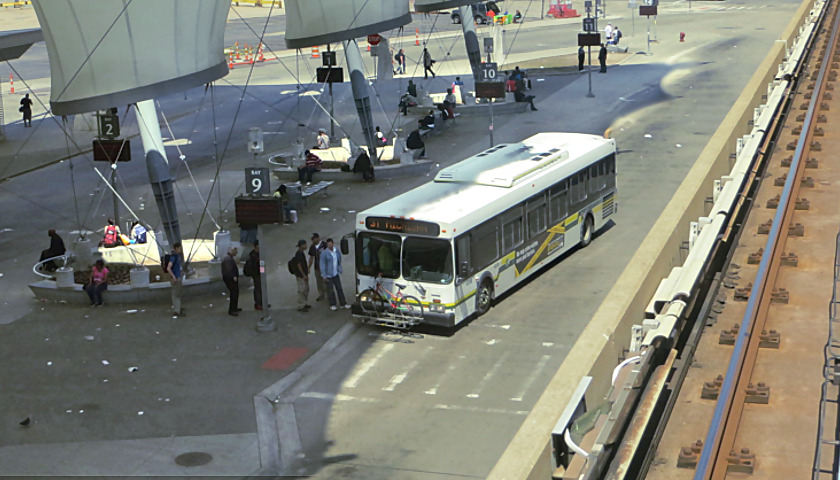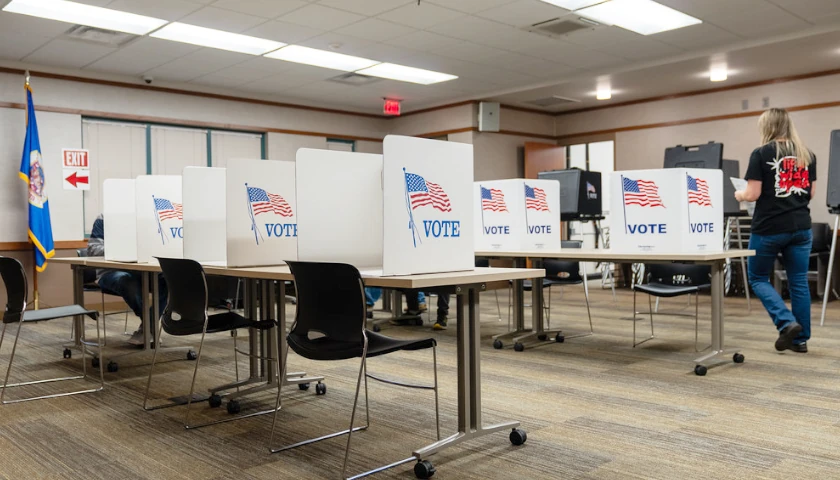by Scott McClallen
More than 50 Michigan business leaders are pushing for the legislature to support a tri-county regional transit tax that would cover Oakland, Washtenaw and Wayne counties.
The consortium of leaders sent a letter to Speaker of the House Lee Chatfield (R-Levering) and Senate Majority Leader Mike Shirkey (R-Clarklake) supporting HB 5229.
That bill aims to amend the Municipal Partnership Act (MPA) to allow “joint endeavors” to levy taxes that wouldn’t count toward constitutional or statutory tax limits for shared services.
Initial plans projected a 20-year, 1.4 mill tax in Washtenaw County would raise an annual total of $23.9 million, with $20.3 million annually funding public transit.
The employers argued that Southeast Michigan’s lack of a transportation system was “one of the most significant barriers to workforce development in our region.”
About 92 percent of jobs in that region aren’t accessible within a 60-minute transit trip, the letter said, and their region spends less than $75 per capita on transit annually, compared to the top 25 metropolitan areas’ average of $184 per capita.
Those 52 executives include Rich Studley, CEO of the Michigan Chamber of Commerce, Sandy Baruah, CEO of Detroit Regional Chamber of Commerce, and Mary Barra, chairman and CEO of General Motors.
Bill sponsor Rep. Jason Sheppard, R-Temperance, said the plan “protects the will of the voters while making sure these types of millages won’t be impacted by an arbitrary cap.”
The legislation gives local voters flexibility to reject the proposal in November if they don’t want it, he said.
Critics argue the bill will tax people who may not use the services.
Matt Maddock posted on Facebook, calling the bill a “transit boondoggle”, adding that the bill would “float Detroit more credit for failing transit with your property taxes, forever.”
Sen. Jim Runestead (R-White Lake) wrote an op-ed in The Detroit News, in which he argued the bill “would undermine 40 years of Headlee’s taxpayer protection reforms.” The Headlee Amendment was passed by Michigan voters in 1978, and imposes limitations on property tax increases.
“Under this bill, local governments could put a millage of up to 5 mills on your property taxes, all while avoiding the taxpayer protections found in our Constitution and preventing local communities from opting out,” Runestead said in a statement. “That means that certain communities in Oakland will not receive any of the supposed benefits of a potential regional transit but will still be forced to pay for projects in Detroit, Wayne County and Washtenaw County.”
In January, 20 Oakland County Association of Township Supervisors passed a resolution opposing the bill.
They estimated that with a 1.5 mill tax, the county would contribute over $31 million in Regional Transit Authority (RTA) taxes in the first year “with little or no service increase for the Township’s tax paying residents,” according to the resolution.
“HB 5229 will enable the RTA to proceed without an established millage rate, without a definitive transportation/infrastructure plan, without a specific list of associated costs and without a viable long-term operational business plan,” the resolution stated.
In 2016, voters in Oakland and Macomb rejected a 20-year, 1.2 mill transit tax.
There are several steps before the millage tax would reach the November 2020 ballot.
The bill would have to pass the House, Senate, and be signed into law.
The governing body of each county would have to adopt the millage proposal via resolution. Then ballot language would have to be submitted by August 2020 so voters could decide in November 2020.
– – –
Scott McClallen is a staff writer covering Michigan and Minnesota for The Center Square.
Photo “Public Transit” by David Wilson CC2.0.





